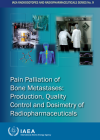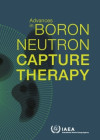Radiopharmaceuticals contain small amounts of radioisotopes that can be produced by irradiating a specific target inside a nuclear research reactor or in particle accelerators, such as cyclotrons. Once produced, the radioisotopes are tagged on to certain molecules based on biological characteristics, which results in radiopharmaceuticals.
Radiopharmaceutical production
As with any medicinal product, radiopharmaceuticals are required to be produced under carefully controlled conditions and are tested for their quality before they are administered to patients, using validated standard operating procedures. More than 100 radiopharmaceuticals have been developed, using radioisotopes that were either produced by nuclear research reactors or cyclotrons.
The production of radiopharmaceuticals involves the handling of large quantities of radioactive substances and chemical processing. While still on a relatively small scale in comparison to the production of conventional pharmaceuticals, it involves a number of aspects that can be quite demanding for small-scale manufacturers. These include the operation and maintenance of processing facilities, complying with the codes of current good manufacturing practices, ensuring effective quality assurance and quality control systems, radioactive material transport, and registration of the products with the relevant health authorities.
The IAEA supports Member States in developing their capacities for the production of radiopharmaceuticals so they can meet their local demands. In particular, the Agency promotes the implementation of good manufacturing practices, a series of international quality-assurance standards designed to protect patients from bad quality products. The standards outline the requirements to ensure that the pharmaceuticals produced are of a high quality, safe and effective, and that they contain the correct potency.
The IAEA’s assistance has in many countries ensured that radiopharmaceuticals are available locally, thereby greatly contributing to the growth of nuclear medicine practices in those countries. The Agency’s support particularly involves: commissioning expert advice; producing technical guidance, for example on the regulatory aspects of introducing new radiopharmaceuticals; creating guidance documentation on self or internal audits of radiopharmaceutical production facilities and on the implementation of quality management systems and good manufacturing practices; and developing human resource capabilities in Member States through training courses and education programmes.
The IAEA also supports the development of clinical nuclear medicine services by assisting Member States in setting up reliable radiopharmaceutical production facilities for single photon emission computed tomography, positron emission tomography, and for therapeutic applications.








